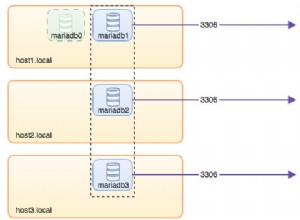Não foi divertido ler sua consulta, mas acho que o problema está aqui:
LEFT JOIN (
SELECT max(notification_date) notification_date, client_id
FROM og_ratings
WHERE notification_date NOT IN (
SELECT max(notification_date)
FROM og_ratings
)
se você quiser a data máxima para cada cliente, você precisa GROUP BY client_id:
SELECT client_id, max(notification_date) notification_date
FROM og_ratings
GROUP BY client_id
se você quiser o segundo máximo, existem poucas opções, estou usando esta que é mais fácil de entender, mas não é necessariamente a mais performática:
SELECT client_id, max(notification_date) notification_date
FROM og_ratings
WHERE
(client_id, notification_date) NOT IN (
SELECT client_id, max(notification_date)
FROM og_ratings GROUP BY client_id
)
GROUP BY client_id
terceiro problema, você está usando um LEFT JOIN, o que significa que você retornará todos os valores de og_ratings, independentemente de serem o segundo máximo ou não. Use INNER JOIN neste contexto:
SELECT
r.client_id,
c.id,
t.id,
..etc...
FROM
og_ratings r INNER JOIN (
SELECT client_id, max(notification_date) notification_2nd_date
FROM og_ratings
WHERE
(client_id, notification_date) NOT IN (
SELECT client_id, max(notification_date)
FROM og_ratings GROUP BY client_id
)
GROUP BY client_id
) r2
ON r.notification_date = r2.notification_2nd_date
AND r.client_id = r2.client_id
LEFT JOIN og_companies c ON r.client_id = c.id
LEFT JOIN og_rating_types t ON r.rating_type_id = t.id
LEFT JOIN og_actions a ON r.pacra_action = a.id
LEFT JOIN og_outlooks o ON r.pacra_outlook = o.id
LEFT JOIN og_lterms l ON r.pacra_lterm = l.id
LEFT JOIN og_sterms s ON r.pacra_sterm = s.id
LEFT JOIN pacra_client_opinion_relations pr ON pr.opinion_id = c.id
LEFT JOIN pacra_clients pc ON pc.id = pr.client_id
LEFT JOIN city ON city.id = pc.head_office_id
WHERE
r.client_id IN (
SELECT opinion_id FROM pacra_client_opinion_relations
WHERE client_id = 50
)




